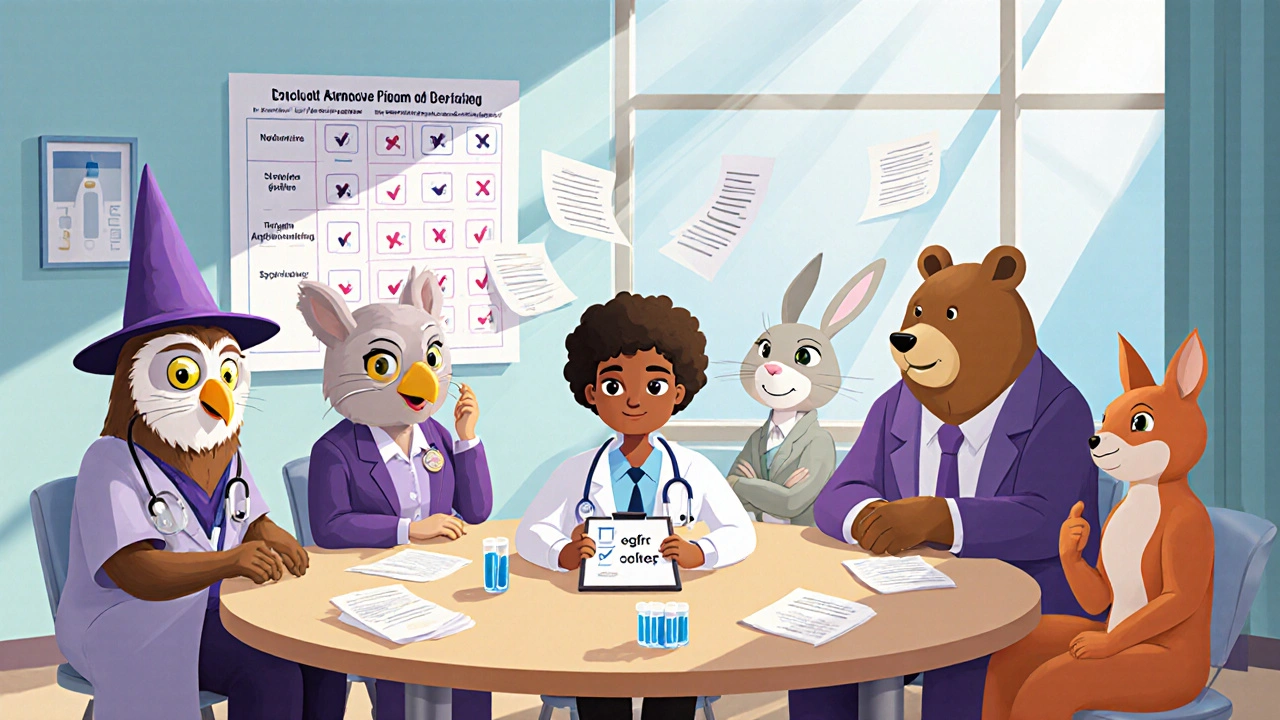Kidney Transplant Evaluation: What You Need to Know Before the Procedure
When your kidneys are failing, a kidney transplant evaluation, a detailed medical process to determine if a patient is eligible for a kidney transplant. Also known as pre-transplant assessment, it’s not just a formality—it’s the first real step toward a longer, healthier life. This isn’t a simple yes-or-no check. It’s a full picture of your health, your lifestyle, and your chances of surviving and thriving after surgery.
The evaluation looks at more than just kidney function. Your heart, liver, and lungs all get checked because transplant surgery is hard on the body. If you have uncontrolled diabetes, active cancer, or severe heart disease, you might not qualify—not because you’re not sick enough, but because the risks outweigh the benefits. Infections like hepatitis or HIV are reviewed carefully too; some patients can still qualify with proper treatment. Your mental health matters just as much. Depression or anxiety won’t automatically disqualify you, but if they’re affecting your ability to take meds or show up for appointments, you’ll need support before moving forward.
Donor matching is another big part of this. You don’t just get any kidney—you get one that fits your immune system. Blood type is the first filter. Then comes tissue typing, a lab test that checks how closely your body’s markers match the donor’s. The closer the match, the lower your chance of rejection. Living donors are often family members, but they can also be friends or even strangers. Every donor goes through their own full evaluation to make sure they’re healthy enough to give up a kidney. And yes, it’s safe—most donors live normal, healthy lives afterward.
You’ll also meet with a social worker, a pharmacist, and a financial counselor. Why? Because transplant care doesn’t end at the hospital door. You’ll need lifelong meds, regular blood tests, and follow-ups. Insurance coverage varies. Some drugs cost thousands a month. If you can’t afford them, the transplant won’t happen. That’s not cruel—it’s realistic. Medication non-adherence is one of the top reasons transplants fail.
There’s no magic age limit. People in their 70s get transplants. So do teens. What matters is how your body holds up, not your birthday. But if you smoke, drink heavily, or refuse to change your diet, the team will push back. This isn’t about punishment—it’s about survival. A transplant isn’t a cure. It’s a second chance, and you have to be ready to earn it.
What you’ll find in the posts below are real stories and practical guides from people who’ve walked this path. You’ll see how medication timing affects transplant success, how to handle swelling from immunosuppressants, and how to avoid infections when your immune system is turned down. There’s advice on saving money on anti-rejection drugs, how to talk to your doctor about side effects, and what to pack in your emergency go-bag if you’re on a transplant list. These aren’t theory pages. They’re tools made by people who’ve been there.






